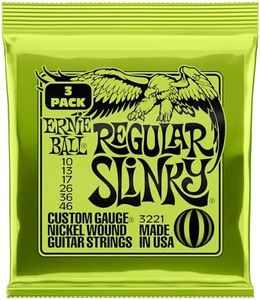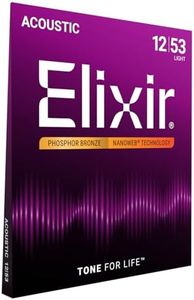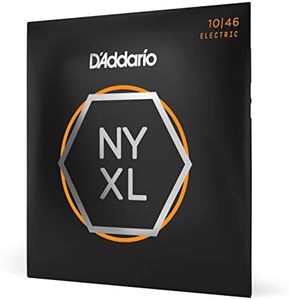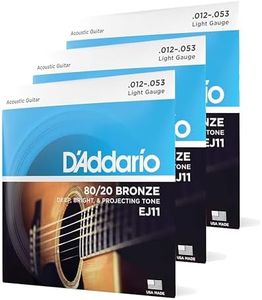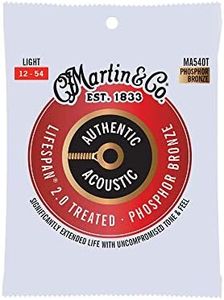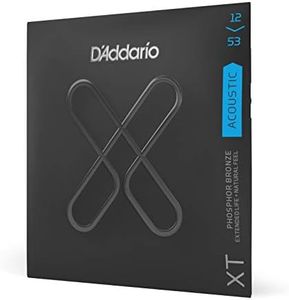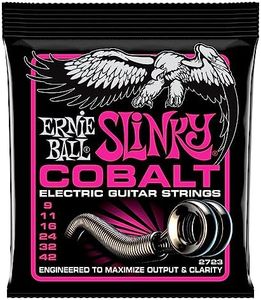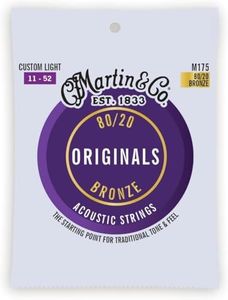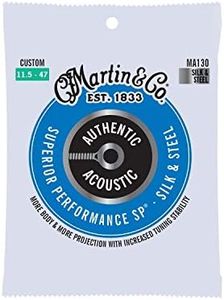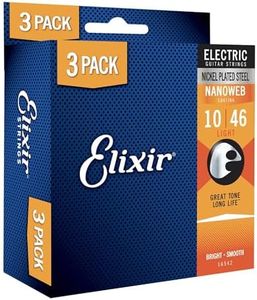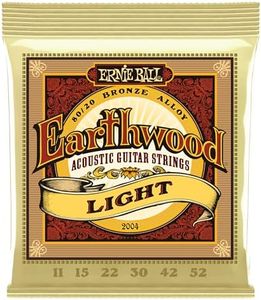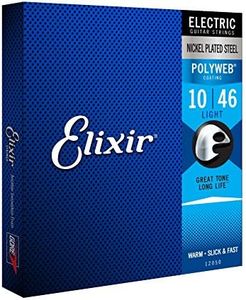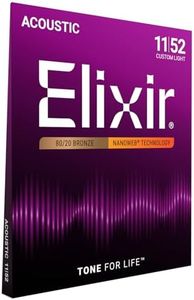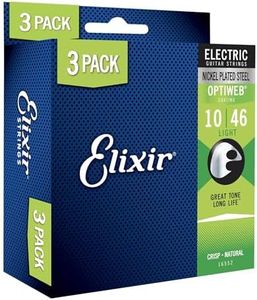We Use CookiesWe use cookies to enhance the security, performance,
functionality and for analytical and promotional activities. By continuing to browse this site you
are agreeing to our privacy policy
10 Best Guitar Strings
From leading brands and best sellers available on the web.Buying Guide for the Best Guitar Strings
Choosing the right guitar strings can significantly impact your playing experience and the sound of your guitar. Whether you're a beginner or an experienced player, understanding the different aspects of guitar strings will help you make an informed decision. Here are the key specifications to consider when selecting guitar strings and how to navigate them to find the best fit for you.GaugeGauge refers to the thickness of the guitar strings, usually measured in thousandths of an inch. This spec is important because it affects the playability and tone of your guitar. Lighter gauge strings (e.g., .009 to .011) are easier to play and bend, making them ideal for beginners or players who prefer a softer touch. Medium gauge strings (e.g., .012 to .014) offer a balance between playability and tone, suitable for a wide range of styles. Heavier gauge strings (e.g., .015 and above) produce a richer, fuller sound but require more finger strength to play. Choose a gauge based on your playing style, skill level, and the type of music you play.
MaterialThe material of the strings affects their tone, durability, and feel. Common materials include nickel-plated steel, pure nickel, stainless steel, and various types of bronze. Nickel-plated steel strings are versatile and provide a bright, balanced tone, making them popular for electric guitars. Pure nickel strings offer a warmer, vintage tone. Stainless steel strings are known for their bright tone and resistance to corrosion, ideal for players with acidic sweat. Bronze strings, such as 80/20 bronze or phosphor bronze, are typically used for acoustic guitars and provide a bright, clear sound. Choose a material based on the type of guitar you have and the sound you want to achieve.
CoatingCoated strings have a thin layer of polymer that protects them from dirt, sweat, and corrosion, extending their lifespan. This spec is important for players who want their strings to last longer and maintain their tone over time. Coated strings can feel smoother and reduce finger noise, but they may also have a slightly different tone compared to uncoated strings. If you play frequently or have acidic sweat, coated strings might be a good choice for you. If you prefer a more traditional feel and tone, uncoated strings could be the way to go.
Winding MethodThe winding method refers to how the outer wire is wrapped around the core of the string. Common winding methods include roundwound, flatwound, and halfwound. Roundwound strings have a textured surface and produce a bright, lively tone, making them popular for most genres. Flatwound strings have a smooth surface and produce a mellow, warm tone, often preferred by jazz and blues players. Halfwound strings are a compromise between the two, offering a smoother feel than roundwound but a brighter tone than flatwound. Choose a winding method based on your preferred tone and playing style.
String TensionString tension refers to the amount of force required to bring the strings up to pitch. This spec is important because it affects the playability and feel of the strings. Low tension strings are easier to press down and bend, making them suitable for beginners or players who prefer a softer touch. Medium tension strings offer a balance between ease of play and tone, suitable for a wide range of styles. High tension strings provide a more robust tone but require more finger strength to play. Choose a tension based on your playing style, skill level, and the type of music you play.
